| Wednesday, April 27 |
| 18:30—20:00 |
Dinner Reception
Dinner hosted by the IMF
|
| Thursday, April 28, 2016 |
| 9:00—9:15 |
Opening Remarks
- ZHOU Xiaochuan, Governor, People’s Bank of China
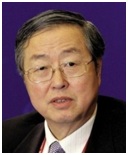
Dr. Zhou was born in January 1948 at Beijing, People’s Republic of China. He graduated with a B.E. degree from Beijing Institute of Chemical Technology in 1975 and received a Ph.D. in Economic Systems Engineering from Tsinghua University in 1985.
Dr. Zhou was Assistant Minister of Foreign Trade and Economic Cooperation from December 1986 to December 1989 and, between November 1986 and September 1991, was also a member of the State Economic System Restructuring Committee. He became Vice President of the Bank of China in September 1991 and remained in that position until October 1995 when he was appointed Administrator of the State Administration of Foreign Exchange. Between October 1996 and February 1998, Dr. Zhou was Deputy Governor of the People’s Bank of China and Administrator of the State Administration of Foreign Exchange. Then, he served as President of the China Construction Bank until his appointment as Chairman of the China Securities Regulatory Commission in February 2000. Dr. Zhou returned to the People’s Bank of China as Governor in December 2002, and started to chair the regular meetings of the Monetary Policy Committee in January 2003.
Dr. Zhou is among the first group of intellectuals who are entitled to receive special government allowance and the author of over 100 academic papers and more than 10 books.
|
| 9:15–10:45 |
Session I: Strengthening the International Monetary System
As the world navigates a low growth environment and EMDCs continue to integrate and deepen their financial markets, risks and vulnerabilities associated with interconnectedness and openness need to be managed. This session will examine four possible areas of reform: (i) mechanisms for crisis prevention and adjustment; (ii) rules and institutions for enhanced global cooperation on issues and policies affecting global stability; (iii) mechanisms for the adequate supply of global liquidity—building on the important milestone of the renminbi’s inclusion in the SDR basket; and (iv) a more coherent GFSN, with a strengthened IMF at its core.
Moderator:
- Alfred Schipke, Senior Resident Representative, IMF
 Alfred Schipke is the IMF Senior Resident Representative for China. Previously, he was a division chief in the Asia and Pacific Department, where he coordinated the work on fast growing low income countries in South-East Asia (Frontier Economies) and led missions to Vietnam. He was a division chief in the IMF’s Western Hemisphere Department in charge of the Latin Caribbean and Eastern Caribbean Currency Union (ECCU) divisions. Among others, he negotiated a high access Stand-by Arrangement, which included a debt restructuring and a debt-equity swap for one of the countries in the ECCU, as well as an $800 million precautionary Stand-By Arrangement for El Salvador. Also, he was the Regional Resident Representative for Central America, Panama, and the Dominican Republic and worked in the IMF European Department. He teaches international trade and finance at Harvard University, John F. Kennedy School of Government and has authored and edited a number of books and articles, including a recently published handbook on the ECCU. His research has focused on economic integration and the linkages between macroeconomics and finance. Alfred Schipke is the IMF Senior Resident Representative for China. Previously, he was a division chief in the Asia and Pacific Department, where he coordinated the work on fast growing low income countries in South-East Asia (Frontier Economies) and led missions to Vietnam. He was a division chief in the IMF’s Western Hemisphere Department in charge of the Latin Caribbean and Eastern Caribbean Currency Union (ECCU) divisions. Among others, he negotiated a high access Stand-by Arrangement, which included a debt restructuring and a debt-equity swap for one of the countries in the ECCU, as well as an $800 million precautionary Stand-By Arrangement for El Salvador. Also, he was the Regional Resident Representative for Central America, Panama, and the Dominican Republic and worked in the IMF European Department. He teaches international trade and finance at Harvard University, John F. Kennedy School of Government and has authored and edited a number of books and articles, including a recently published handbook on the ECCU. His research has focused on economic integration and the linkages between macroeconomics and finance. Speakers:
- ZHU Jun, Director General, International Department, People’s Bank of China
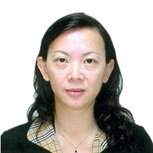
Ms. Zhu Jun joined the People’s Bank of China in 1993 and has held a variety of positions since then. After working in the Governor’s Office, Ms. Zhu joined the International Department in 1997, first in the BIS Division and then in the Research Division. In 2006, she took the position of the Director of the Research Division, and the Deputy Director-General of the International Department in 2009. She was appointed as the Director-General of the International Department in 2015. She worked in the BIS as a secondee from March to October 1999. In September 2003, she returned to the BIS and worked as an Economist until December 2005. Ms. Zhu graduated from Peking University with a Bachelor’s degree in Economics in 1989, and received her Master’s degree in Economics in Peking University in 1993.
- Alfred Kammer, Deputy Director, Strategy, Policy and Review Department, IMF
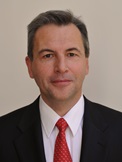
Alfred Kammer is Deputy Director of the Strategy, Policy and Review Department of the International Monetary Fund and oversees the work on strategy and surveillance. Previously, he was Deputy Director of the Middle East and Central Asia Department, overseeing regional economic developments and financial sector issues; Director of the Office of Technical Assistance Management, advising management on technical assistance operations and overseeing fundraising and global partnerships for capacity building; and Advisor to the Deputy Managing Director, advising on a wide range of country, policy, and strategic issues. In the late 1990s, Mr. Kammer served as resident representative of the IMF in Russia and was advisor to the first deputy chairman of the Central Bank of Russia. Since joining the IMF in 1992, Mr. Kammer also worked with countries in Europe, Central Asia, and Africa, and on a wide range of policy and strategic issues. He obtained his graduate degree in economics from the State University of New York at Albany and post-graduate degrees from the Kiel Institute of World Economics in Germany and the University of Southern California in Los Angeles
- LI David, Professor, Tsinghua University
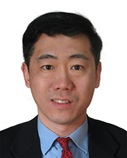
David D. Li is the Mansfield Freeman Chair Professor of Economics, Director of Center for China in the World Economy (CCWE), and the founding Dean of the Schwarzman Scholars at Tsinghua University, which is a fellowship program with a master’s degree curriculum. The program's objective is to bring future global leaders to Tsinghua as a way to bridge the gap between China and the rest of the world.
As a leading Chinese economist, Professor Li is active in policy advising and discussions. He served on China’s Monetary Policy Committee and was an external advisor to the International Monetary Fund. He is a member of the Chinese People’s Political Consultative Committee (CPPCC) and a member of Sino-German Advisory Committee. He’s also a member of the Global Agenda Council of the World Economic Forum based in Switzerland.
Professor Li holds a B.S. and Ph.D. in economics from Tsinghua University and Harvard University, respectively.
- Chia Der Jiun, Assistant Managing Director, Monetary Authority of Singapore
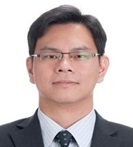
Chia Der Jiun is an Assistant Managing Director and Head of the Markets and Investment Group at the Monetary Authority of Singapore. In this role, he has responsibilities for the implementation of monetary policy through the foreign exchange market, ensuring stable and well-functioning money markets, the issuance of Singapore Government Securities and the management of the Official Foreign Reserves. Prior to this appointment in September 2013, Mr Chia has variously headed the Banking, Macroeconomic Surveillance and Prudential Policy departments in MAS. From May 2011 to April 2013, he served as Southeast Asia’s Executive Director at the International Monetary Fund. From 1995 to 2003, he was an Administrative Service Officer in the Singapore Government.
Open Discussion
|
| 10:45—11:00 |
Coffee Break |
| 11:00—17:00 |
Session II: International Experience in Resolving Debt Problems and Deleveraging |
| 11:00-12:15 |
Part I: International Experience with Credit Booms and Deleveraging
Credit boom and bust are common in emerging markets, but the global financial crisis was a reminder that advanced economies are equally susceptible. In addition to drawing lessons on how to minimize the risk of the credit bubble buildups, conference participants will look at past deleveraging experiences that might be relevant for China.
Moderator:
- LIU Chunhang, Director General, Policy Research Bureau, Chinese Banking Regulatory Commission
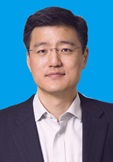
Liu Chunhang is Director General of Policy Research Bureau at China Banking Regulatory Commission (CBRC). He joined the CBRC in 2006 as Deputy Director General of Statistics Department. Since 2011, Mr. Liu has served as the CBRC representative on the Standing Committee on Supervisory and Regulatory Cooperation under the Financial Stability Board. Between 2012 and 2015, he was Chair of the Leverage Ratio Group under the Basel Committee on Banking Supervision, responsible for leading the work on the Basel III leverage ratio standard. He is currently Chair of the Supervision and Implementation Group under the Basel Committee.
Prior to joining the CBRC, Mr. Liu worked at Morgan Stanley and McKinsey on the restructuring and business strategies of multinational firms and financial institutions. Mr. Liu received his MPhil and PhD from Cambridge University and MBA from Harvard Business School (Baker Scholar).
Publications include Decoding Basel: A Brief Analysis of the International Banking Regulatory Framework (2015), Multinationals, Globalization and Indigenous Firms in China (2009). Mr. Liu is also editor-in-chief of Financial Regulation Review.
Speakers:
- Moritz Schularick, Professor, Bonn University, Germany

Moritz Schularick is Professor of Economics at the University of Bonn and a Research Fellow of the Centre for Economic Policy Research and the CESifo. In 2015/16, he is the Alfred-Grosser-Professor at SciencesPo in Paris. Previously, he taught at the Free University of Berlin and was a visiting professor at New York University and the University of Cambridge. Working at the intersection of macroeconomics, international economics and economic history, his research has been published in the American Economic Review, the Journal of Monetary Economics, the Journal of International Economics, the Review of Economics and Statistics, the Journal of Money, Credit and Banking, and several other journals. His research is currently supported by grants from the German Federal Ministry of Education and Research, the Volkswagen Foundation and the Institute for New Economic Thinking.
- Giovanni Dell'Ariccia, Deputy Director, Research Department, IMF

Giovanni Dell'Ariccia is Deputy Director of the IMF Research Department where he supervises the activities of the Macro-Financial Division. Previously he worked in the Asia and Pacific Department. His research interests include: Banking; the Macroeconomics of Credit; Monetary Policy; International Finance; and Conditionality in International Lending and Aid Programs. His research has been published on major economics and finance journals. Mr. Dell’Ariccia holds a Ph.D. from MIT and a Laurea (Summa cum Laudem) from the University of Rome. He is a CEPR Research Fellow.
- Yongbeom Kim, Secretary General, Financial Services Commission, Korea
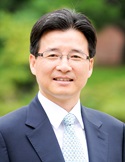
Yongbeom Kim was appointed as the Secretary General of the Financial Services Commission on November 9, 2015, responsible for coordinating and directing the functional responsibilities of Korea’s top financial authorities. Prior to his appointment, he served as the Standing Commissioner of the Securities and Futures Commission with a mandate to ensure fairness and order in Korea’s capital markets.
In his career as a government official since 1986, Dr. Kim has been through key posts including Director of Banking System Division in the Ministry of Finance and Economy, Deputy Secretary for Economic Policies in the Office of the President of Korea, Director General and Head of Post Insurance Unit of the Korea Post, Director General of Financial Policy Bureau and Capital Markets Bureau of the Financial Services Commission. In 2000, he left the government for four and a half years to work as senior economist at the World Bank, where he specialized in the Chinese economy. In 2010, Dr. Kim served as Director General of Global Financial Architecture Bureau in the Presidential Committee for the G20 Seoul Summit.
As an economic expert, Dr. Kim is known for his strong knowledge of international affairs and deep insights into financial markets.
Dr. Kim graduated from Seoul National University, magna cum laude, with a bachelor’s degree in economics and received his doctorate in economics from George Washington University on a Fulbright Scholarship.
- Jonathan Anderson, Co-Founder, Emerging Advisors Group

Jonathan Anderson is President of Emerging Advisors Group, an China-based emerging market macro consultancy that services the global fund management and financial industries. Prior to founding EM Advisors Jonathan was the Global Emerging Market Economist at UBS Investment Bank; he has also worked at Goldman Sachs and the International Monetary Fund, where he served as Resident Representative in both China and Russia. Jonathan received his MA and PhD candidacy in economics at Harvard University, and speaks fluent Russian and Mandarin Chinese.
Discussion
|
| 12:15—13:45 |
Lunch
Keynote Speaker
- Grzegorz W. Kolodko, Professor at Kozminski University and former Deputy Prime Minister and Minister of Finance, Poland
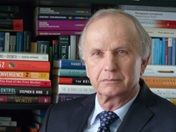
Prof. Grzegorz W. Kolodko – intellectual and politician, a key architect of Polish reforms. Deputy Prime Minister and Minister of Finance, 1994-97 and 2002-03. Member of the European Academy of Arts, Sciences and Humanities. Founder and Director of Transformation, Integration and Globalization Economic Research, TIGER (www.tiger.edu.pl) at Kozminski University. Author of research papers and numerous books published in 26 languages. The world's most quoted Polish economist. Marathon runner and globetrotter who’s explored over 160 countries.
|
| 13:45-15:15 |
Part II: Corporate Debt and Leverage
Since the global financial crisis, China’s policy stimulus has led to a surge in corporate indebtedness. Based on international experience, conference participants will discuss how best to reduce vulnerabilities and leverage. In this context, participants will also look at China’s corporate bond market. While it provides an important alternative form of financing, its development needs to go hand-in-hand with an appropriate risk pricing and a strengthening of supervision and regulation.
Moderator
- XUAN Changneng, Director General, Financial Stability Bureau, People’s Bank of China
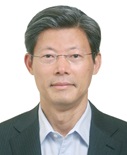
XUAN Changneng is the Director-General of Financial Stability Bureau, the People’s Bank of China. He received his bachelor’s degree from University of Science and Technology of China, Ph.D. in Finance from University of Texas (Austin) and LL.M. from the University of Pennsylvania. He worked for JP Morgan as a senior analyst in derivatives. Before joining the PBC, Mr. Xuan’s major career experiences in China include serving as the Deputy Director-General of Department of Intermediary Supervision, China’s Securities Regulatory Commission (2000-2004); the Secretary to Board for China Construction Bank from 2004-2006, broadly involved in the restructuring, reorganizing and IPO tasks of the bank. Mr. Xuan has an extensive background in the areas of investment banking, financial derivatives, regulation in capital market, banking sector reform, corporate governance as well as private equity. He had published a number of books and papers in these areas.
Speakers:
- Markus Rodlauer, Deputy Director, Asia and Pacific Department, IMF
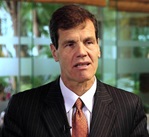
Markus Rodlauer is Deputy Director of the IMF’s Asia and Pacific Department (APD). Among other leadership responsibilities, he heads the Fund’s China team, which conducted the annual Article IV Consultations with the People’s Republic of China in recent years. His previous jobs at the Fund included Deputy Director of Human Resources, Deputy Director in the Western Hemisphere Department, Mission Chief for a number of countries in Asia, Europe, South America, and IMF Representative to Poland and the Philippines. Mr. Rodlauer worked with the Ministry of Foreign Affairs of Austria before joining the IMF. His academic training includes degrees in law, economics, and international relations.
- Wojciech Maliszewski, Senior Economist, Asia and Pacific Department, IMF

Wojciech S. Maliszewski is a Senior Economist working on China in the Asia and Pacific Department. Prior to taking this position he worked on Greece and Iceland in the European Department Prior and on several other assignments at the IMF, including four years in the Fiscal Affairs Department. Mr. Maliszewski’s research interests and publications have mainly focused on monetary policy and structural reforms. He holds a Ph.D. and M.Sc from London School of Economics, a M.A. from the University of Sussex and a M.A. from the University of Warsaw. He was born and brought up in Poland.
- MA Jun, Chief Economist, Research Bureau, People’s Bank of China
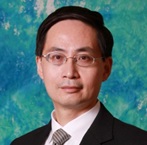
Dr. MA Jun is Chief Economist at the People’s Bank of China (PBC)’s Research Bureau. Before joining the PBC in early 2014, he worked for 13 years at Deutsche Bank, where he was Managing Director, Chief Economist for Greater China, and Head of China and Hong Kong Strategy. Prior to joining Deutsche Bank in 2000, he worked as public policy specialist, economist and senior economist at the International Monetary Fund and World Bank from 1992-2000. From 1988-1990, he was a research fellow at the Development Research Center of China's State Council.
Dr. Ma has published eleven books and several hundred articles on the Chinese economy, global economy, and financial markets. His main research interests include macroeconomics, monetary and financial policies, and environmental economics.
Dr. Ma received his Ph.D. in Economics from Georgetown University in 1994, and his master's degree in Management Science from Fudan University in 1988.
- WANG Tao, Managing Director, Co-head of Asia Economics, UBS

Dr. Tao Wang is a Managing Director and Co-Head of Asian Economic Research at UBS. She leads a team that covers China’s macroeconomic development and policy issues and her team has been ranked highly in investor surveys. Prior to joining the company, Dr. Wang was Head of Greater China Economics and Strategy at Bank of America and Head of Asian Economics at BP plc. Before joining the private sector, Dr. Wang was a Senior Economist at the International Monetary Fund (IMF), working on the China desk. At the IMF, Dr. Wang was involved in programme negotiations and annual consultations with many member countries, and published a number of research papers.
Dr. Wang received her PhD in economics from New York University and her Bachelor’s degree from Renmin University, Beijing.
- Sean Hagan, Director, Legal Department, IMF

Sean Hagan is General Counsel and Director of the Legal Department at the International Monetary Fund. In this capacity, Mr. Hagan advises the Fund’s management, Executive Board and membership on all legal aspects of the Fund’s operations, including its regulatory, advisory and lending functions. Mr. Hagan has published extensively on both the law of the Fund and a broad range of legal issues relating to the prevention and resolution of financial crisis, with a particular emphasis on insolvency and the restructuring of debt, including sovereign debt.
Prior to beginning work at the IMF, Mr. Hagan was in private practice, first in New York and subsequently in Tokyo. Mr. Hagan received his Juris Doctor from the Georgetown University Law Center and also received a Master of Science in International Political Economy from the London School of Economics and Political Science.
Discussion
|
| 15:15—15:30 |
Coffee Break |
| 15:30-17:00 |
Part III: Local Government Debt
China’s surge in public debt over the past years was mainly driven by local governments. To address this issue, the government has implemented a number of reforms, including a large local government bond-swap program. Conference participants will discuss the government’s recent reform efforts, including the implications of the swap program, and—based on international experience—identify areas for further reforms.
Moderator:
- Ratna Sahay, Deputy Director, Monetary and Capital Markets Department, IMF

Ratna Sahay is Deputy Director of the Monetary and Capital Markets Department (MCM) at the International Monetary Fund (IMF). She is responsible for setting strategic priorities for the department, leading key policy papers and projects, and budget and human resource management of the department. Her recent projects include analytical work on unconventional monetary policy and global spillovers, financial deepening, and financial inclusion. She has served as Advisor to Stanley Fischer (First Deputy Managing Director) and Advisor to Michael Mussa and Kenneth Rogoff (both Economic Counselors of the IMF). She has published widely in leading journals on the financial sector including financial market spillovers and financial crises, inflation, economic growth, fiscal policy and debt sustainability, and transition economies. She has taught at Delhi University, Columbia University, and New York University and holds a Ph.D. in Economics from New York University, New York.
Speakers:
- WANG Kebing, Deputy Director General, Budget Department, Ministry of Finance, China
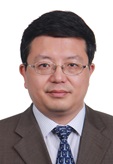
WANG Kebing, Deputy Director-General of Budget Department, Ministry of Finance, P. R. China, Ph. D in Management. He has long term work experience in the field of fiscal legislation and budget management. He has worked as the director of budget division and Deputy Director-General of Tianjin Financial Bureau, as well as the Deputy Director-General of Department of Laws and Regulations, Ministry of Finance, P. R. China.
- WANG Weixing, Director General, Policy Research Department, Ministry of Finance, China
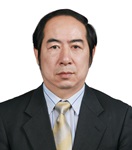
Mr. Wang Weixing is currently the Director General of Policy Research Department of the Ministry of Finance, P.R.C, Ph.D. in economics. He was promoted to Deputy Director General of the Budget Department in 1997, DG-level Inspector in 2003, Director General of the Rural Comprehensive Reform Office of the State Council in 2009. In more than 30 years of budget and fiscal management working, DG Wang has established a solid theoretical foundation and rich working experience, presiding translations such as the “Public Expenditure Management Handbook”, "Contemporary Public Expenditure Management", "Public Expenditure Management", and publications such as "Research on Government Budget Management Procedures and Methods", etc.
- WEI Jianing, Research Fellow, Development Research Center of the State Council, China
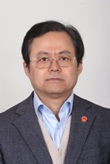
Mr. WEI Jianing is director-general and researcher in the Development Research Center (DRC) of the State Council. He has had extensive experience in the DRC, specializing in the macroeconomics. He first joined the Macro Economy Department in 1991 and became the director-general (inspector) in 2013. Mr. Wei has collaborated and written joint works with many distinguished and prominent economists, including Mr. Wu Jinglian and Mr. Sun Xiangqing He has been prolific and published on macroeconomic policies, financial risks and supervision, and fiscal issues on local government finances, which serve as inputs to the policy design. In 2014, he published a book on Resolving risks of local government debt and new municipal financing. He received his doctoral degree on economics from China Academy of Social Science.
- XIAO Yuanqi, Director General, Prudential Regulation Bureau, Chinese Banking Regulatory Commission
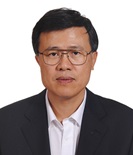
Xiao Yuanqi is currently the Director General of the Prudential Regulation Bureau of China Banking Regulatory Commission. Previously, he successively took the positions as the Director General of the Banking Supervision Department I (in charge of the supervision of large commercial banks in China), the Director General of the Banking Supervision Department II (in charge of the supervision of small and medium commercial banks in China), the Director General of the CBRC Chongqing Bureau, the deputy Director General of the CBRC Guangdong Bureau. Before these, during his more than 25 years working experience in banking regulation and supervision, Mr Xiao has taken various positions in CBRC and People’s Bank of China, with relate to the direct supervision of both domestic and foreign banks. Mr Xiao also directly took part in the series of negotiations during the process of China joining World Trade Organization (WTO).
Mr Xiao has been greatly involved in the making and implementation of many key decisions with respect to the reform and opening up of Chinese banking industry, taking charge of the drafting and finalizing various important banking regulations and policies. He has conducted numerous innovative researches in the area of domestic and international economics and finance, publishing dozens of specialized papers and books. Among them are the following: “Financial structure and financial development”, “Security market and financial institutions”, “Strategy and strategy management”, “The development of foreign banks in China” and “International comparison of banking regulation”.
- LIU Shangxi, Director General, Chinese Academy of Fiscal Sciences, China
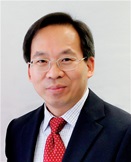
Mr. LIU Shangxi, PhD in economics, is currently a researcher, doctoral advisor, Secretary of the Party Committee, and Dean at Chinese Academy of Fiscal Science. He is an expert who receives the State Council Special Government Allowance and a national expert of the “National Hundred, Thousand, and Ten Thousand Talent Project”. In 2015, Mr. LIU was a participant in the Economic Analysis Expert Colloquium hosted by Mr. LI Keqiang, China’s Premier, and in the Study Colloquium of the Leading Party Group of the National People’s Congress (NPC) on Fiscal and Tax Reforms hosted by Mr. ZHANG Dejiang, Chairman of the NPC Standing Committee. In January 2016, Mr. LIU participated in and addressed the Economic Analysis Conference of the National Committee of the Chinese People’s Political Consultative Conference (CPPCC) hosted by Mr. YU Zhengsheng, Chairman of the CPPCC. Mr. LIU is also affiliated with a number of organizations and holds the following titles: member of the State Council Advisory Committee on Education, member of the State Council Advisory Committee on Medical Reform, member of the Expert Review Team of the National Social Science Foundation, vice president and secretary general of the Chinese Finance Society, member of the Expert Committee of the National Committee for Disaster Reduction, special commentator on tax issues for the State Administration of Taxation, special researcher of institutions including the China Reform Study Society, budgetary surveillance advisor to the Standing Committee of the People’s Congress of the Municipality of Beijing, and advisor to the Governments of Guangdong and Hubei Provinces, among others. Mr. LIU is a former expert of the National Science and Technology Major Project, member of the medical technology steering group for New Rural Cooperative Medical Care, and member of the expert group for the overall design of Key National Technology Infrastructure Constructions, among others.
Mr. LIU has made innovative achievements in the areas of income distribution, public risk, fiscal risk, public finance, the macroeconomy, public governance, etc. His major books include: Circulation of Income Distribution, Study of Fiscal Risks and Their Prevention, Contingent Debt: Hidden Fiscal Risks, Macrofinancial Risks and Government Responsibilities, Public Finance from the Viewpoint of Public Risk, Tax and Consumption, Tax and People’s Livelihood and Integration of Technology and Economy. He is also the author of a number of papers, including Fiscal Risks, an Analytical Framework, On Public Risks, On Categorization of Transfer Payments, “Employment Status” of Farmers: the Decisive Force for Success in China’s Reform and Development, Rationale for the Provision of Public Goods and Socialization, A People-Oriented Fiscal Philosophy: Finance for People’s Livelihood, the Root of Current Economic Problems: the Lagging Change in the Development Model, Consumption Rate, Economic Vulnerabilities and Risks for Sustainable Development, Equal Opportunities for Basic Public Services: Objectives and Policy Path, Equal Opportunities for Basic Public Services and the Government’s Fiscal Responsibilities, China: Challenge of Urbanization to Intra-governmental Relations, Public Governance Reform Based on New Types of Urbanization, and others.
- Bert Hofman, Country Director, Office for China, Mongolia and Korea, World Bank
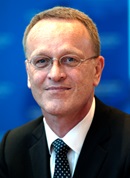
Bert Hofman, a Dutch National, is the World Bank's Country Director for China, Mongolia and Korea in the East Asia and Pacific Region, based in Beijing since 2014, his 3rd tour of working on China since the early 1990s. He is leading a team that is managing the World Bank’s largest loan portfolio and directs an extensive analytical and advisory program with China and Mongolia, and a growing knowledge partnership with Korea.
Prior to his present assignment, Mr. Hofman was the World Bank's Chief Economist for the East Asia and Pacific Region and Director, Singapore Office from 2011-14. As regional chief economist he led a team to analyze key trends and policy issues across East Asia and the Pacific and as Director Singapore he helped build a partnership that focuses on expanding investment in infrastructure in emerging economies.
Before moving to Singapore, Mr. Hofman was the Country Director for the Philippines, responsible for a growing portfolio of projects and advisory services to the Philippines government.
Mr. Hofman has accumulated more than 23 years of experience in the World Bank, 18 of which in the East Asia region. Among others, Mr. Hofman was Lead Economist for China and for Indonesia and country economist for Mongolia and Namibia.He had also worked on Brazil, South Africa, Russia, Zambia, and Namibia in his earlier years with the Bank.
Prior to joining the World Bank, Mr. Hofman worked at the Kiel Institute of World Economics in Germany, the Organization for Economic Cooperation and Development (OECD) in Paris, and NMB Bank in the Netherlands (now ING).
Mr. Hofman holds a degree in economics of Erasmus University Rotterdam and studied at the Christian Albrechts University, Kiel.
Discussion
|
| 17:00:—18:00 |
Concluding Roundtable
The panel discussion will draw on key insights from the day’s discussions. Panel members will summarize the main takeaways of the two sessions, with a focus on potential lessons for China.
Moderator:
- ZHANG Tao, Director General, Legal Affairs Department, People’s Bank of China
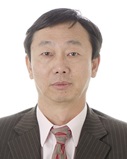
Dr. ZHANG Tao has been Director General of the Legal Affairs Department of the People’s Bank of China since 2015. He held various senior positions in the People’s Bank of China (PBOC), including research, statistics, international, and legal affairs. Before joining PBOC, he worked at the World Bank and the Asian Development Bank. He was the Executive Director for China at the International Monetary Fund, during 2011-2015.
Dr. ZHANG has an M.A. and Ph.D. in International Economics from the University of California, Santa Cruz, USA, and a B.S. Electrical Engineering and M.S. Finance from Tsinghua University, Beijing, China.
Panelists
- YI Gang, Deputy Governor, People’s Bank of China
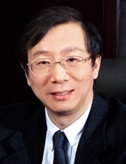
Dr. Yi Gang received his Ph.D. in economics at the University of Illinois in 1986. From 1986 to 1994, he taught at the Department of Economics, Indiana University. In 1994 he co-founded with others the China Center for Economic Research (CCER) at Peking University, and has since served as a professor at the Center.
Dr. Yi joined the People's Bank of China (PBC) in 1997 and served as Secretary-General of its Monetary Policy Committee and Director of Monetary Policy. In December 2007, he was appointed Deputy Governor of PBC and in July 2009 began to concurrently hold the office of Director of the State Administration of Foreign Exchange. In December 2015 he was renamed PBC’s Deputy Governor.
His research interests include monetary issues, banking and the Chinese economy.
- ZHU Guangyao, Vice Minister, Ministry of Finance, China
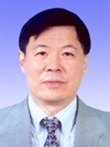
ZHU Guangyao is the Vice Minister of the Ministry of Finance (MOF), P. R. China. He graduated with a bachelor’s degree from Beijing Technology and Business University in 1982, and received his Master in Economics from Research Institute of Fiscal Science at MOF in 1985.
Mr. Zhu was Secretary of the Secretariat (at Deputy Director level) at Research Institute of Fiscal Science at MOF from 1988 to 1992, he joined the Department of the World Bank of MOF in 1992, first he was Deputy Director of Division of Energy, Industry and Communication from 1992 to 1993, and was the Director of Division of Agriculture between 1993 and 1994. Then, he served as China’s Alternative Executive Director at the World Bank from 1994 to 1996. He returned to MOF and took the position of the Deputy Director General of Treasury Bond and Finance Department in 1997, he became Director General of International Affairs Department of MOF in 1998. He also served as China’s Executive Director at the World Bank from 2001 to 2004. Then he returned to MOF as Director General of International Affairs Department in 2005. He was appointed Assistant Minister of MOF in 2007, and as Vice Minister of MOF in May 2010.
- HUANG Yiping, Professor, Peking University
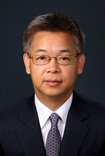
Huang Yiping is Jin Guang Chair Professor of Economics/Deputy Dean at National School of Development and Director of Institute of Internet Finance, Peking University. His research focuses mainly on macroeconomic policy and financial reform. Currently he serves as a member of the People’s Bank of China’s Monetary Policy Committee. He is also the Rio Tinto Adjunct Professor in the Chinese Economy at the Australian National University, a member of the China Finance 40 Forum and a member of the Chinese Economists 50 Forum. He is Editor of China Economic Journal and an Associate Editor of Asian Economic Policy Review. Previously, he was a policy analyst at the Research Center for Rural Development of the State Council, research fellow and senior lecturer of economics at the Australian National University, General Mills International Visiting Professor of Economics and Finance at the Columbia Business School, Managing Director and Chief Asia Economist for Citigroup, Chief Economist for Caixin Media Group, Managing Director and Chief Economist for Emerging Asia for Barclays, and an Independent Director of China Life Insurance Ltd, Minmetal Trust Ltd and Alibaba’s online bank Mybank. He received his Bachelor of Agricultural Sciences (Agricultural Economics) from Zhejiang Agricultural University, Master of Economics from Renmin University of China and PhD in Economics from Australian National University.
- Changyong Rhee, Director, Asia and Pacific Department, IMF
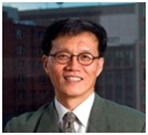
Changyong Rhee assumed his current position as Director of the Asia and Pacific Department of the International Monetary Fund (IMF) in February 2014. Prior to coming to the Fund Dr. Rhee was chief economist at the Asian Development Bank (ADB). He was the chief spokesperson for ADB on economic and development trends, and oversaw the Economics and Research Department.
Dr. Rhee was the secretary-general of the G20 summit’s Presidential Committee in the Republic of Korea. Prior to his appointment at the FSC, Dr. Rhee was a Professor of Economics at Seoul National University and Assistant Professor at University of Rochester. He was also a frequent and active policy advisor to the Government of Korea, including in the Office of the President, the Ministry of Finance and Economy, the Bank of Korea, the Korea Securities Depository, and the Korea Development Institute.
His key research interests include macroeconomics, financial economics, and the Korean economy. He has published many papers in these fields. Dr. Rhee obtained his Ph.D. in Economics from Harvard University, and his Bachelor degree in Economics from Seoul National University.
|
|
18:00—18:15 | Closing Remarks
- Markus Rodlauer, Deputy Director, Asia and Pacific Department, IMF

Markus Rodlauer is Deputy Director of the IMF’s Asia and Pacific Department (APD). Among other leadership responsibilities, he heads the Fund’s China team, which conducted the annual Article IV Consultations with the People’s Republic of China in recent years. His previous jobs at the Fund included Deputy Director of Human Resources, Deputy Director in the Western Hemisphere Department, Mission Chief for a number of countries in Asia, Europe, South America, and IMF Representative to Poland and the Philippines. Mr. Rodlauer worked with the Ministry of Foreign Affairs of Austria before joining the IMF. His academic training includes degrees in law, economics, and international relations.
|
| 18:30—20:30 |
Dinner Reception
Dinner hosted by People's Bank of China
|




 Alfred Schipke is the IMF Senior Resident Representative for China. Previously, he was a division chief in the Asia and Pacific Department, where he coordinated the work on fast growing low income countries in South-East Asia (Frontier Economies) and led missions to Vietnam. He was a division chief in the IMF’s Western Hemisphere Department in charge of the Latin Caribbean and Eastern Caribbean Currency Union (ECCU) divisions. Among others, he negotiated a high access Stand-by Arrangement, which included a debt restructuring and a debt-equity swap for one of the countries in the ECCU, as well as an $800 million precautionary Stand-By Arrangement for El Salvador. Also, he was the Regional Resident Representative for Central America, Panama, and the Dominican Republic and worked in the IMF European Department. He teaches international trade and finance at Harvard University, John F. Kennedy School of Government and has authored and edited a number of books and articles, including a recently published handbook on the ECCU. His research has focused on economic integration and the linkages between macroeconomics and finance.
Alfred Schipke is the IMF Senior Resident Representative for China. Previously, he was a division chief in the Asia and Pacific Department, where he coordinated the work on fast growing low income countries in South-East Asia (Frontier Economies) and led missions to Vietnam. He was a division chief in the IMF’s Western Hemisphere Department in charge of the Latin Caribbean and Eastern Caribbean Currency Union (ECCU) divisions. Among others, he negotiated a high access Stand-by Arrangement, which included a debt restructuring and a debt-equity swap for one of the countries in the ECCU, as well as an $800 million precautionary Stand-By Arrangement for El Salvador. Also, he was the Regional Resident Representative for Central America, Panama, and the Dominican Republic and worked in the IMF European Department. He teaches international trade and finance at Harvard University, John F. Kennedy School of Government and has authored and edited a number of books and articles, including a recently published handbook on the ECCU. His research has focused on economic integration and the linkages between macroeconomics and finance. 


























